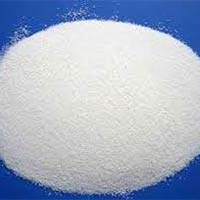
Zinc Sulphate Monohydrate (IP/ USP)
Zinc Sulphate Monohydrate (IP/ USP) is the inorganic compound with the formula ZnSO4. It was historically known as "white vitriol". Zinc Sulphate Monohydrate is a colorless solid that is a common source of soluble zinc ions. We are one of the largest Manufacturers, Exporters and Suppliers of Zinc Sulphate Monohydrate.
...more
Voltage Controllers
This product is designed with innovative software algorithms residing on latest technology PIC microcontroller chips. The design is conceived so as to reduce production overheads like wiring and testing when it is put on the servo voltage stabilizer. Integrated voltage stabilizer controller greatly reduces labour costs and increases production rate of the voltage stabilizers.
...more
Synchronous Motor
Poised to achieve leadership in electrical engineering industry, Applied Electricals and Electronics is one of the most reputed manufacturers of quality AC Synchronous Servo Motors, Servo Voltage Controllers and OTS Controllers. The company boasts of a strong technical force, advanced production equipments and stylish designs.
...more
Sodium Hydroxide (IP/ Ph. Eur.)
Sodium Hydroxide (IP/ Ph. Eur.), also known as caustic soda, is an inorganic compound with the chemical formula NaOH. It is a white solid and highly caustic metallic base and alkali salt which is available in pellets, flakes, granules, and as prepared solutions at a number of different concentrations. Sodium Hydroxide forms an approximately 50% (by weight) saturated solution with water. Sodium Hydroxide is soluble in water, ethanol and methanol. This alkali is deliquescent and readily absorbs moisture and carbon dioxide in air. Sodium Hydroxide is used in many industries, mostly as a strong chemical base in the manufacture of pulp and paper, textiles, drinking water, soaps and detergents.
...more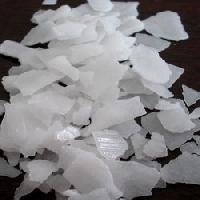
Sodium Hydroxide

Sodium Bicarbonate (IP/BP)
Sodium Bicarbonate (IP/BP) or sodium hydrogen carbonate is the chemical compound with the formula NaHCO3. Sodium Bicarbonate is a white solid that is crystalline but often appears as a fine powder. It has a slightly salty, alkaline taste resembling that of washing soda (sodium carbonate). It is among the food additives encoded by European Union, identified by the initials E 500. Since it has long been known and is widely used, the salt has many related names such as baking soda, bread soda, cooking soda, and bicarbonate of soda. In colloquial usage, its name is sometimes shortened to sodium bicarb, bicarb soda, or simply bicarbSodium Bicarbonate mixed with water can be used as an antacid to treat acid indigestion and heartburn. It is used as the medicinal ingredient in gripe water for infants. Sodium bicarbonate is also used as an ingredient in some mouthwashes. It has anti-caries and abrasive properties.
...more
Polydine
Polydine (Iodine Solution) is an antiseptic solution broad spectrum bactericidal, fungicidal, virucidal, sporicidal solution. Polydine is a multipurpose microbiocidal solution that’s kills both Gram-positive and Gram-negative bacteria. Its microbiocidal action also extends to fungi, viruses protozoa and yeast. It is available as Polydine 5% and Polydine 10% Active ingredient : Povidone Iodine IP 5% w/v (0.5% w/v available iodine) or Povidone Iodine IP 10% w/v (1.0% w/v available iodine). Applications : Patient pre and post-operative skin preparation Antiseptic treatment of superficial wounds, traumatic injuries, burns and lacerations and abrasions and vaginal preparations prior to surgery etc Treatment of bacterial and mycotic skin infection and mucosal area Helps reduce bacteria that potentially can cause skin irritation Directions for use :Should be applied full strength as often as required, as a paint or wet soak. Its activity persists as long as the color remains. The golden brown color serves as an indicator to highlight the disinfected areas. Caution : When using this product : Prolonged exposure to wet solution may cause irritation or, rarely, severe skin reactions. In pre-operative prepping, avoid “pooling” beneath the patient Do not mix with detergents or other chemicals. Go to a doctor if Irritation, sensitization, or allergic reaction occurs and lasts for 72 hours. Contraindicated in case of known iodine sensitivity. Keep out of reach of children. If swallowed, get medical help. To be stored in a cool place protected from light Polydine 7.5% Surgical Scrub Active ingredient : Povidone Iodine IP 7.5% w/v (0.75% w/v available iodine) Applications and directions for use : Use undiluted. Anti-microbial hand washing – deliver 5 ml onto wet hands, scrub for about 1 minute. Rinse thoroughly and dry. Surgical hand washing of operative team - Deliver 5 ml on wet hands and forearms scrubbing for 3 – 5 minutes. Rinse thoroughly and dry with sterile towel. Body washing – Wet the area and deliver enough solution to work up lather. Rinse thoroughly and dry.
...more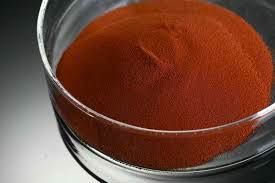
Povidone Iodine Powder (IP/BP/ USP)
Povidone Iodine Powder (IP/BP/ USP) is a broad spectrum antiseptic for topical application in the treatment and prevention of infection in wounds. Povidone Iodine Powder may be used in first aid for minor cuts, grazes, burns, abrasions and blisters. Iodine has been recognized as an effective broad-spectrum bactericide, and it is effective against yeasts, molds, fungi, viruses, and protozoans. Povidone Iodine Powder is completely soluble in cold and mild-warm water, ethyl alcohol, isopropyl alcohol, polyethylene glycol, and glycerol. Its stability in solution is much greater than that of tincture of iodine or Lugol's solution. Slow release of iodine from the PVPI complex in solution minimizes iodine toxicity.
...more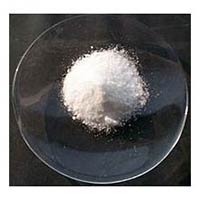
Potassium Chloride (IP / Ph. Eur)
We are a major Manufacturer, Exporter and Supplier to food and pharmaceutical firms of Potassium Chloride (IP / Ph. Eur) (KCl). In addition to standard grades of Potassium Chloride, our plant in adheres to current GMP (Good Manufacturing Practices) and is overseen by the FDA. The chemical compound Potassium Chloride (KCl) is a metal halide salt composed of potassium and chlorine. In its pure state, it is odorless and has a white or colorless vitreous crystal appearance, with a crystal structure. Potassium chloride was historically known as "muriate of potash". This name is occasionally still encountered in association with its use as a fertilizer. KCl is used in medicine, scientific applications, and food processing. Potassium Chloride (KCl) is used extensively by the pharmaceutical and food industries to provide a number of functional benefits including sodium reduction and nutrient replacement. It is also used as a reagent in laboratory testing, as a reducing agent in the high purity metals industry, in the production of photographic film and in buffering solutions.
...more
Polysan - D
Polysand Iodophor is a powerful Dairy sanitizer. Milk and milk products are one of the most likely foods to be spoiled by bacterial contamination. A definite hygiene program is a prerequisite for all stages of milk production. Iodophors are extensively used in Great Britain, the United States, Australia, New Zealand etc. and its effectiveness as cleaners and sanitizers is well-established. Polysan – D is an iodophor product containing ‘Tamed Iodine’ complexed with non-ionic surface agent and phosphoric acid. Attributes : A dairy sanitizer and a general purpose disinfectant Ideal for hygiene in dairy and food processing, ice-cream plants It is safe, non-selective and rapidly inactivates most bacteria, molds and viruses Contains a detergent so it cleans as it disinfects Preventive and removes milk stone Contains its own activity color indicator which visually indicates own germicidal effectiveness Active ingredients : Available iodine 1.6%, alkyl phenoxy poly oxyethylene ethanol (surface active agent), phosphoric acid 10%. Advantages : It prevents scaling in hard water. Use of Polysan – D is not appreciably affected by changes in pH or water hardness. However, lowering of the pH enhances the germicidal power of iodine Effective bactericidal action at low concentration, which makes it economical and safe The detergent base provides excellent cleaning and rinsing thereby reducing corrosion hazards and enabling penetration of even fine scratches Non-irritating to skin and can be used without precaution that are necessary for hypochlorite based products Does not deteriorate rubbers and liners as quickly as other cleaners. Prevents and removes milk stone It works at even low temperature and should never be used above 45oC Directions for Use :The usual operation in handling dairy and other food-processing equipment is to clean it for removing any excess foreign material and then giving a sanitizing rinse. For cleaning 0.5% to 1% solution in water containing 75-150 ppm of available iodine may be used. A sanitizing rinse with 0.1% to 0.2% of solution containing 15-25 ppm, available iodine may be given thoroughly drained and air-dried just before use. Dairy Use :For cleaning and disinfection of milk house and milking parlors: Spray walls, floors and ceiling with solutions containing 1 liter Polysan – D in 150 liters of water. (0.75% solution containing 100 ppm available iodine). For Milking Utensils and Equipment : For cleaning, flush utensils and equipment with cool or luke-warm water. Do not use hot water. Take milking machine apart and place all parts except pulsator in lukewarm water containing 1 liter of Polysan – D in 600 liters with 0.15% solution containing 25 ppm available iodine. Brush thoroughly Wash pails and other equipment in the same solution. Soak for at least two minutes. Drain and air dry. For Sanitizing Clean Equipment : Flush with solution of 1 liter Polysan – D in 1000 liters of water (o.1% solution contains 15 ppm available iodine). This should be done before each milking and drained thoroughly. For Bulk Milk Tanks : For cleaning, flush out all milk with water. Brush tank with lukewarm water containing 1 liter of Polysan – D in 600 liters of water. (0.16% solution containing 25 ppm available iodine). Drain and air dry. For sanitizing, spray tank with solution containing 1 liter of Polysan – D in 1000 liters of water. For Cleaning and Disinfection of Food Processing Equipment and Utensils : Scrap and pre-flush equipment to remove foreign material. Wash with water containing 1 liter of Polysan – D in 300 liters of water. Allow contact for at least 2 minutes. Sanitize with a solution containing 1 liter of Polysan – D in 1000 liters of water. Drain and air dry. For Bulk Milk Vending Machine: For cleaning and sanitizing this machine, a special method called CIP (cleaning in place) has been worked out by some users and may be adopted. For a 1000 liter capacity vessel, 40 liters of ½% Polysan – D solution containing 75 ppm available iodine (200 ml of Polysan – D added to 40 liters of water) is circulated in the vessel with pump for 20 minutes. Flush out and drain the solution completely and let the vessel air dry. Rinsing with clean water is not necessary. Use in Mastitis :Polysan – D is very effective in killing mastitis organisms. Research carried-out by National Institute of Dairying in U.K has shown that the use of iodophor as teat-dip considerably reduces the incidence in mastitis. It is ideally suited because of its fast and wide range of kill and kindness to the skin, both of cow’s udders and milkers’ hands and visual indication of the germicidal strength. To combat mastitis, use 1 per cent solution of Polysan – D in water for washing udder and the udder cloth. Further TEAT-DIP technique may be used. Test-dip should be used to leave a protective film of iodine on the skin of teat between milkings. For this make up a stock solution in the proportion of one part of Polysan – D with 3 parts of water. From this solution take some in a suitable cup to dip teats in it for a few minutes and then leave the protective coating on the teat till the next milking. To prevent mastitis, use ½% solution of Polysan – D with water i.e. one part of solution diluted with 200 part of water (available iodine 75 ppm). Milker’s hands should also be immersed in this solution between cows. Alternatively Use, for Tank and Udder Wash : Wet towel in solution containing 1 liter Polysan – D in 1000 liters of water (0.1% solution with 15 ppm available iodine). Use a clean towel for each cow. Never reuse towel or dip used towel back into solution. Always use freshly prepared solution and non-corrodible utensils. Caution :Use only as directed. The concentrate, without dilution is harmful, if swallowed or if it comes in contact with the eyes and may also cause skin irritation. In case of contact of the concentrate with skin or eyes, flush with plenty of water for 10 minutes and get medical attention if necessary. Keep the concentrate away from food and feed-stuffs. Polysan – D diluted as directed is safe, however, avoid breathing and mist when spraying. A distinct yellow or amber color of the Polysan – D solution indicates the presence of active iodine. If color fades, prepare a fresh solution. Do not use hot water to prepare solutions. Keep in a cool place. Do not use soap or other cleaners.
...more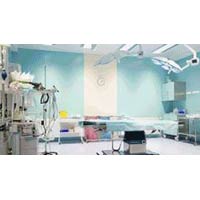
Polysan
We are a prominent Manufacturer, Exporter, and Supplier of Polysan (Iodophor). Polysan is a good broad spectrum disinfectant with excellent bactericidal, fungicidal, and algaecidal properties. It is widely used in Hospitals, Veterinary and Food Processing Industry for complete disinfection. Polysan has highly effective, non-selective, and wide spectrum bactericidal action. Attributes : Visually indicates its own germicidal activity Safe and non-toxic, non-irritating & non-staining Powerful detergent action (cleanses while disinfecting) Useful in hospitals, food industry, breweries and hatcheries Active Ingredient : Alkyl phenoxy polyethoxy, ethanoliodine complex. Available (titratable) iodine 1.6% minimum. PolySan – A is fast acting and non-selective. It covers a wide-spectrum of effectiveness and protection against wide variety of disease-causing agents, such as bacteria, spores, viruses, molds, protozoa, fungi, yeast and other pathogens. PolySan – A has residual anti-bacterial effect which last four days or more. Safety : Iodine in the form of iodophor in Polysan is effective even when available in very minute quantity, such as 0.0075% (75 ppm) or less. In this form iodine is non-toxic and non-irritating, practically non-staining and safe-when used as directed. Economical : PolySan - A is supplied in highly concentrated form. For most uses, only 0.5% solution of Polysan in water is sufficient – 1 liter of PolySan - A will provide 200 liters of use-solution for general disinfection. Self-Indicator : Polysan has the unique distinction of indicating its own germicidal activity. When used in recommended dilution, the solution is of a rich amber color. In use, the color fades as the iodine-complex kills organisms and iodine gets used up. However, as long as the amber color remains in the solution, germicidal action continues. The user may be certain at all times that the disinfectant solution retains the ability to kill most organisms quickly and completely. In case of many other disinfectants the smell persists beyond their germicidal activity cease and thereby misguiding the user. Applications : It can be used from housekeeping uses, such as walls, floors and other surfaces, to the operating theatre and surgical wards. Some of its specific uses are listed below : General disinfection : Particularly in hospitals that have areas devoted to contagious diseases like tuberculosis, poliomylitis. It can also be used on wall, furniture and all other surfaces including dishes, utensils etc. Disinfection of hospital kitchens, cafeterias and lunchrooms with stainless steel equipment, refrigerators, kettles, receptacles, refuse areas, etc. Hospital equipment – such as thermometers, bedpans, urinals Surgical instruments – for disinfection of scissors, forceps, rubber gloves, etc. Morgue – disinfection of operating tables, refrigerators and general cleaning in the area. For laboratories such as bacteriology, pathology and chemistry (not applicable in chemistry labs, in performing protein bound iodine studies). Animal rooms and cages - in hospital large enough to have research facilities, disinfection is swift and sure – also reduce the animal odors. It is also used in operating rooms and maternity rooms for table, instruments and equipment. Polysan Pre-Operative Scrub to be prepared as given in dilution chart. This is highly recommended for use as micro-biocidal skin cleanser, and as skin degerming agent. It is also useful for pre-operating and post-operative scrub. Family Planning Centers - some of these centers are located outside regular hospitals or work as mobile units, chances of infection at such Family Planning Centers is more than in regular hospitals. PolySan – A, being an all-purpose disinfectant, is ideally suited for this. Veterinary Use - Polysan can be used for general hygiene to prevent spread of infection, washing of odor and prevention of Mastitis as well as in poultry farms. Polysan is recommended for skin antisepsis, foot rot in sheep, ORF, ringworm, foot and mouth disease and the general treatment of indeterminate dermatitis. Industrial Plants Schools, Public Places : PolySan – A, being a germicide-cum-detergent, can be effectively and economically used for daily sanitary procedures. It is specifically useful for workers’ locker rooms, wash and shower rooms (prevents spread of athlete’s foot infection), cafeteria, public and private lavatories. Use of Polysan will inhibit the possible cross infection by the disease-causing organisms. Food Processing Plants, Breweries, Hatcheries and Sugar Plants : Polysan can be used effectively for control of undesirable bacterial growth and for sanitizing the equipment. Directions for Use :Polysan is highly concentrated and only 0.5% solution in water is used as a general-purpose disinfectant and cleanser (5 ml of Polysan: 1 litre of water, 75 ppm available iodine). For porous surface or those difficult to clean, especially molds and fungi use 1% solution (10 ml of Polysan: 1 LITRE of water, 150 ppm available iodine). The use solution will have a dark-brown color, and with usage the fading of color indicates germicidal property being used up. When color fades away, prepare fresh solution. The surface article to be disinfected should be in through contact with solution for about 5 minutes. General Instructions :Polysan should be diluted with water at room temperature. Hot water, soap or other detergents should not be used with Polysan. If required, Sodium nitrite should be added as indicated in the dilution chart for instrument disinfection. Polysan should not be used with copper, brass or poorly plated or worn-out articles of metal. Polysan solution will not affect articles of stainless steel or aluminum or other properly plated metals.
...more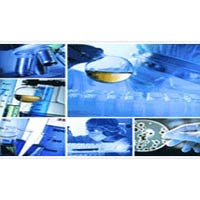
Polykonium
We are offering Polykonium (Benzalkonium Chloride Solution) to the clients. Polykonium contains Benzalkonium chloride 5% complexed with Nonyl Phenol Ethoxylate, perfume, and color Q.S. Polykonium also known as Alkyl Dimethyl Benzyl Ammonium Chloride is a Quarternary Ammonium Compound with exceptional microbial properties when used as a disinfectant sanitizer, deodorant, germicide and algicide. Polykonium has many uses in various fields. Nonyl Phenol Ethoxylate increases the dispersion of Benzalkonium Chloride as well as its effectiveness against most commonly found bacteria. Nonyl Phenol Ethoxylate also increases the detergent properties of Benzalkonium Chloride. This powerful combination makes Polykonium a very potent and effective germicidal and antiseptic solution. Attributes : Effective against a wide range of gram positive, gram negative organisms and viruses Stable with 2 years shelf life Non-irritating, Non staining and is bio-degradable Multiple Applications - Spraying in sterile rooms, mopping of floors and walls, cleaning of surgical and orthopedic equipment pre-operative scrubs, hand washing etc. Applications : Hospitals and Nursing Homes : Spraying in sterile rooms, mopping of floors and walls, cleaning of surgical and orthopedic equipment pre-operative scrubs, hand washing etc. In various industries such as : Hotels and Restaurants, Poultry and Animal Husbandry, Fisheries and Food Processing, Pharmaceutical, Swimming Pools, Cooling Towers, Sugar, Food Processing, Timber, Papers, very effective for Household use etc. Cooling Towers – In various Industries, Hotels, Hospitals and Cinema House if not treated chemically get contaminated giving rise to serious problems. The Microorganisms found in cooling towers can be classified as, Bacteria- Which are more or less free swimming in the water, Algae- Which attach themselves to the tower structure and Fungi - Which invade and destroy the wood in the cooling towers. Reduces the bacteria, scale formation and corrosion Prevents the formation of slime, petting and formation of iron globules Prevents the formation of foul smelling gasses like Ammonia and Hydrogen Sulphide. Method of Application for Cooling Towers : A 0.5% (1:200) solution of Polykonium in water is sufficient for an initial dosage, followed by a weekly dosage of 2% (1:500) solution. This will eliminate all fungi, algae, and the most of the bacteria. Polykonium dilute solution can be fed manually into the cold water at the intake point of circulating pumps. It should be added gradually to avoid foaming. Advantages : Anti Microbial Properties : It helps disrupt membranes and denature proteins of the microorganism. It effectively kills bacteria. Economical : Polykonium is highly concentrated and is to be used in very dilute solution. Even 0.5% to 2% solution works under most circumstances. Stable : Polykonium is stable in a wide range of pH from 6 to 9 even at elevated temperatures. Polykonium is an excellent biocide. The term biocide covers all the different application where the Benzalkonium Chloride solution can be used to destroy microorganism, cells or to prevent their growth.
...more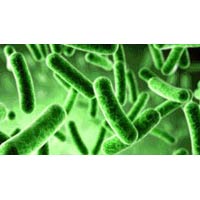
Polycide
Polycide (Dichlorophene Biocide) is a unique formulation based on conjugated phenolic compound with Dichlorophene (5.5 dichloro, 2.2 dihydroxy, diphenylmethane) as an active ingredient. It is recommended for the control of slime, algae in all types of water-systems and humid atmosphere. Its dispersion property helps in excellent distribution of active content in the slimy masses and water systems. Polycide is effective over wide range of pH higher than 7.5 when other biocides lose their activity. Polycide is an exceptionally broad-spectrum biocide with powerful bactericidal, fungicidal and algicidal activity. It is active against organisms found in vegetative growth in water-cooling systems and other places. The organisms consist of algae such as yellow, green, bullish green and brown; the fungi such as Aspergillus niger, Ascomycetes, Basidiomycetes and Bacteria such as S. Typhae, S-Aureus etc. It acts against the cell wall and protoplasm of the organism and arrest the bioactivity. Polycide contains ingredients, which are stable and effective in the presence of extraneous organic matter. Less than 60 parts per million (ppm) concentration of Polycide control many of the organisms normally found in industrial waters.All in one (bactericidal, fungicidal and algicidal properties) : Useful and applicable in wide range of industries etc It is non-toxic to marine life and bio-degradable Active in presence of inorganic and organic matter Non-corrosive to metals, plastics, textile and wooden materials Odorless, non-staining, non-irritant to skin Stable in alkaline and acidic condition and even at high temperature Above all highly economical and cost effective Physical Properties : Appearance : Clear brown colored liquid Sp. Gravity : 1.03 – 1.05 pH : 9.0 (Alkaline) Solubility : Miscible with water Compatibility : Compatible with organic and inorganic materials except oxidizing agents Use of Polycide : Water Treatment : Prevention of growth of Algae, Fungi and Bacteria in water General Sanitation : Prevention of growth of Algae, Fungi and Bacteria over surface Preservative : Prevention of decay and loss of product Due to bacteria Industrial Application : The biocidal property of Polycide is very useful in preventing the undesired and harmful growth of algae, fungi and bacteria in various process industries such as breweries, distilleries, baking, confectionery and food processing. It is also used in the preservation of industrial products, such as textile, paper, leather and paint.Method of Application – Dilution for Use :Polycide is water miscible product. It can be directly added to cooling water systems and air-conditioning plants to control the growth of algae, fungi and other microorganisms in water. For general sanitation of premises and equipment of baking, confectionery, food processing, brewing and distilleries, dilute solution of Polycide is advised to be used for spraying / rinsing the surface and equipment. For preserving industrial products dilute solution to be used for coating / impregnation of the finished products. Dosages : The quantity of Polycide required to render protection to any particular system will depend on various factors such as the area / volume of the habitat and density of the microorganism to be controlled / killed. As a rule, an intensive dose is followed by mild dosage after certain period of intervals as the case may be. 200 ml Polycide to be diluted with 100 liters of clean water and mixed properly to make 0.2% v/v homogenous solution for general sanitation 500 ml Polycide to be diluted and mixed with 100 liters clean water to make 0.5% v/v homogeneous solution for preservation purpose of gums 1 litre Polycide to be diluted and mixed with 100 liters clean water to make 1% v/v solution for preservation of textile, leather, paper and paints The first dose (Shock dose) for water treatment is given by adding 2 liters of Polycide for every 10,000 liters of water present in the system directly After one week, repeat dosage for water treatment is given by adding 1 liter of Polycide for every 10,000 liters of water in the system. This should be applied weekly until the existing growth is killed Maintenance does of Polycide is 500 ml fir every 10,000 liters of water to be given in the system to prevent the recurrence of slime formation Water Cooling and Air Conditioning Systems :The water ambient temperature in cooling system serves a good habitat for algae and fungi. The micellium along with other entrapped matters from gelatinous ‘slime’. The slime formation chokes the flow of water thereby decreasing the heat transfer capacity of the heat exchanger. Polycide can be mixed with water in circulating systems. To prevent slime formation, it acts as Slimicide. Municipal Authorities :To maintain hygienic condition and to prevent infectious diseases, control of bacterial growth in public was house and swimming pools are necessary. Polycide can be added for this purpose and sanitizing water bodies.Breweries and Distilleries :These industries face difficult problem in controlling the growth of bacteria, fungi, algae at various places such as: fermenters, storage tanks, pasteurizers, bottle washing plants particularly in distilleries. Ethyl Alcohol is manufactured by fermentation process of molassess with the help of Yeast. However, the molassess solution contains variety of sacharides, which get converted into organic compound other than Ethyl Alcohol due to bio-oxidation by bacteria present in the molassess solution. This cuts down the yield of alcohol. Polycide can be used to control / prevent the growth of bacteria to improve the yield of alcohol. Following is the recommended dose of Polycide for the desired results. Method of Application – Distilleries :For an optimum control in 1000 liters of fermentation solution of molassess 100 ml of Polycide to be added which will give a concentration of 10 ppm in the solution of molassess. However, a minimum of 50 ml of Polycide should be added for a concentration of 5 ppm per 1000 liters solution of molassess. Polycide should be added directly to the fermenter containing molassess. Sugar Industry :In sugar industries, the fine particles of sugar are blown up along with hot air while sugar is being dried. The exit air after drying sugar contains fine particles of sugar which are removed by scrubbing with water. The water is continuously circulated and the sugar gets dissolved making ‘Sweet Water”. This sweet water remains in circulation unit until it reaches a desired concentration of sugar. This sweet water is then sent to processing plant for recovery of sugar. During the circulation period, sweet water is susceptible for fermentation caused by bacteria. Polycide can be used to prevent the fermentation of sugar in sweet water, thereby increasing the recovery of sugar. Usage :For optimum control in 1000 liters of sweet water, 200 ml of Polycide should be added which will give a concentration of 20 ppm in the bulk sweet water quantity. However a minimum of 100 ml of Polycide should be used for 1000 liters for a concentration of 10 ppm. Method of Application for Sugar Industries :Polycide can be added directly to the sweet water or the desired quantity of Polycide concentrate can be diluted in a bucket of water for convenience of adding it to the sweet water while in circulation or otherwise. Horticulture :Algal growth on the sand of propagating benches will be prevented by the addition of 10 ml of Polycide solution to every 100 gallons (450 liters) of water used for bench irrigation. Frequency of treatment will depend on the loss of water in its liquid phase from the bench. Under normal conditions, the addition of Polycide to the bench irrigation water should be made twice a month. Handling, Storage and Precaution : Polycide has a long shelf life under normal condition. The solution is alkaline in character and non-corrosive to metals. The material shall be stored in a closed container at room temperature. Use PVC hand glove while handling, In case of spillage over body, wash with sufficient quantity of water. In case of accidental ingestion, consult industrial physician. It is not advisable to use Polycide under the following conditions : When effluent, containing Polycide is directly discharged into ponds or slow flowing rivers containing fish. When water containing Polycide pass through deionization plant In dehumidifying systems connected directly to tobacco during roasts. Polycide is not suitable for use in cationic emulsions. Polycide is a concentrate solution, must be diluted before use. Note : Nothing in this product bulletin is to be taken as warranty. We have offered the technical data for your consideration. Purchaser should determine by their own method the desirability and dosage of this product for their specific use / purpose.
...more
Monosodium Phosphate (IP/BP)
Monosodium Phosphate (IP/BP) (NaH2PO4), also known as Sodium Acid Phosphate and Sodium Dihydrogen Phosphate. One of many sodium phosphates, it is a common industrial chemical. We supply as IP/ BP grades as Dihydrate. We can provide Monosodium Phosphate with MLT Test Report. Monosodium Phosphate is used as a laxative in combination with other phosphates, as a pH buffer. Monosodium Phosphate is also used in metal treatment, dyestuffs & in acid based cleaners.
...more
Monopotassium Phosphate (Phosphate BP)
Monopotassium Phosphate (Phosphate BP), MKP, (also potassium dihydrogen phosphate, KDP, or monobasic potassium phosphate), KH2PO4, is a soluble salt of potassium and the dihydrogen phosphate ion, which is used as a fertilizer, a food additive and a fungicide. Monopotassium Phosphate is a source of phosphorus and potassium. It is also a buffering agent. When used in fertilizer mixtures with urea and ammonium phosphates, it minimizes escape of ammonia by keeping the pH at a relatively low level.
...more
milking machine parts
Milk and milk products are one of the most likely foods to be spoiled by bacterial contamination. A definite hygiene program is a prerequisite for all stages of milk production. Iodophors are extensively used in Great Britain, the United States, Australia, New Zealand etc. and its effectiveness as cleaners and sanitizers is well-established. POLYSAN-D is an iodophor product containing ‘Tamed Iodine’ complexed with non-ionic surface agent and phosphoric acid. Active ingredients: Available iodine 1.6% alkyl phenoxy poly oxyethylene ethanol (surface active agent), phosphoric acid 10%.
...more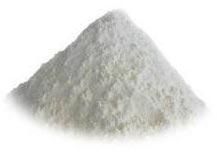
Magnesium Carbonate (Light BP)
Magnesium Carbonate (Light BP), MgCO3, is an inorganic salt that is a white solid. Magnesium Carbonate is used as an antacid and alkaline buffer in pharmaceutical preparations. Magnesium Carbonate is also used as an ingredient in toothpastes and dentifrices, and in the preparation of magnesium citrate. We offer pure and adulterant free Magnesium Carbonate powder to the clients.
...more
Magnesium Carbonate
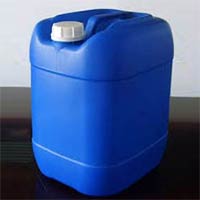
Glacial Acetic Acid (IP)
Glacial Acetic Acid (IP) (systematically named ethanoic acid is an organic compound with the chemical formula CHOOH (also written as CH3CO2H or C2H4O2). It is a colorless liquid that when undiluted is also called glacial acetic acid. Glacial Acetic Acid has a distinctive sour taste and pungent smell. Glacial Acetic Acid is mainly produced as a precursor to polyvinylacetate and cellulose acetate. Although it is classified as a weak acid, concentrated acetic acid is corrosive and attacks the skin.Glacial Acetic Acid is one of the simplest carboxylic acids. It is an important chemical reagent and industrial chemical. In the food industry, acetic acid is used under the food additive code E260 as an acidity regulator and as a condiment. As a food additive, it is approved for usage in many countries, including Canada, the EU, USA and Australia and New Zealand.Glacial Acetic Acid is used in analytical chemistry for the estimation of weakly alkaline substances such as organic amides. Glacial acetic acid is a much weaker base than water, so the amide behaves as a strong base in this medium.
...more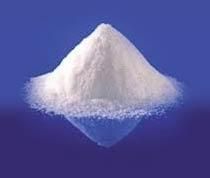
Disodium Edetate (EDTA Disodium) (IP/BP)
We are a noted Manufacturer, Exporter and Supplier of high purity Disodium Edetate (EDTA Disodium) (IP/BP) as per IP and BP Monograph. Ethylenediaminetetraacetic acid, widely abbreviated as EDTA, is an aminopolycarboxylic acid and a colourless, water-soluble solid. Its conjugate base is named ethylenediaminetetraacetate. It is widely used to dissolve limescale. Its usefulness arises because of its role as a hexadentate ("six-toothed") ligand and chelating agent, i.e. its ability to "sequester" metal ions such as Ca2+ and Fe3+. After being bound by EDTA, metal ions remain in solution but exhibit diminished reactivity. EDTA is produced as several salts, notably disodium EDTA and calcium disodium EDTA.EDTA is used to bind metal ions in the practice of chelation therapy, e.g., for treating mercury and lead poisoning. Dentists and endodontists use EDTA solutions to remove inorganic debris (smear layer) and lubricate the canals in endodontics. EDTA is used extensively in the analysis of blood. It is an anticoagulant for blood samples for CBC/FBEs.
...more
Dipotassium Phosphate (BP/AR)
Dipotassium Phosphate (BP/AR) (K2HPO4) (also di-potassium salt; di-potassium hydrogen orthophosphate; potassium phosphate, dibasic) is a highly water-soluble salt, which is often used as a fertilizer, food additive and buffering agent. It is a common source of phosphorus and potassium.A Dipotassium Phosphate solution is formed by the stoichiometric reaction of phosphoric acid with two equivalents of potassium hydroxide
...more
dairy cleaner
Idophor Containing Tamed Iodine,A Dairy Sanitizer And A General Purpose Disinfectant,Ideal for hygiene in dairy and food processing, ice-cream plants,It is safe, non-selective and rapidly inactivates most bacteria, molds and viruses,Contains a detergent so it cleans as it disinfects,Preventive and removes milk stone,Contains its own activity colour indicator which visually indicates own germicidal effectiveness
...more
Citric Acid Monohydrate (IP)
Citric Acid Monohydrate (IP) is a weak organic acid with the formula C6H8O7. It is a natural preservative/conservative and is also used to add an acidic or sour taste to foods and drinks. Citric acid is a commodity chemical, and more than a million tons are produced every year by fermentation. It is used mainly as an acidifier, as a flavoring, and as a chelating agent.At room temperature, citric acid is a white crystalline powder. It can exist either in an anhydrous (water-free) form or as a monohydrate. The anhydrous form crystallizes from hot water, while the monohydrate forms when citric acid is crystallized from cold water. In chemical structure, citric acid shares the properties of other carboxylic acids. Citric Acid is widely used as a pH adjusting agent in creams and gels of all kinds.
...more
Citric Acid Anhydrous
We are rated among the top Manufacturers, Exporters and Suppliers of Citric Acid Anhydrous. Citric Acid Anhydrous is a weak organic acid with the formula C6H8O7. It is a natural preservative/conservative and is also used to add an acidic or sour taste to foods and drinks. Citric acid is a commodity chemical, and more than a million tons are produced every year by fermentation. It is used mainly as an acidifier, as a flavoring, and as a chelating agent.At room temperature, citric acid is a white crystalline powder. It can exist either in an anhydrous (water-free) form or as a monohydrate. The anhydrous form crystallizes from hot water, while the monohydrate forms when citric acid is crystallized from cold water. In chemical structure, citric acid shares the properties of other carboxylic acids. Citric Acid Anhydrous is widely used as a pH adjusting agent in creams and gels of all kinds.
...moreBe first to Rate
Rate This